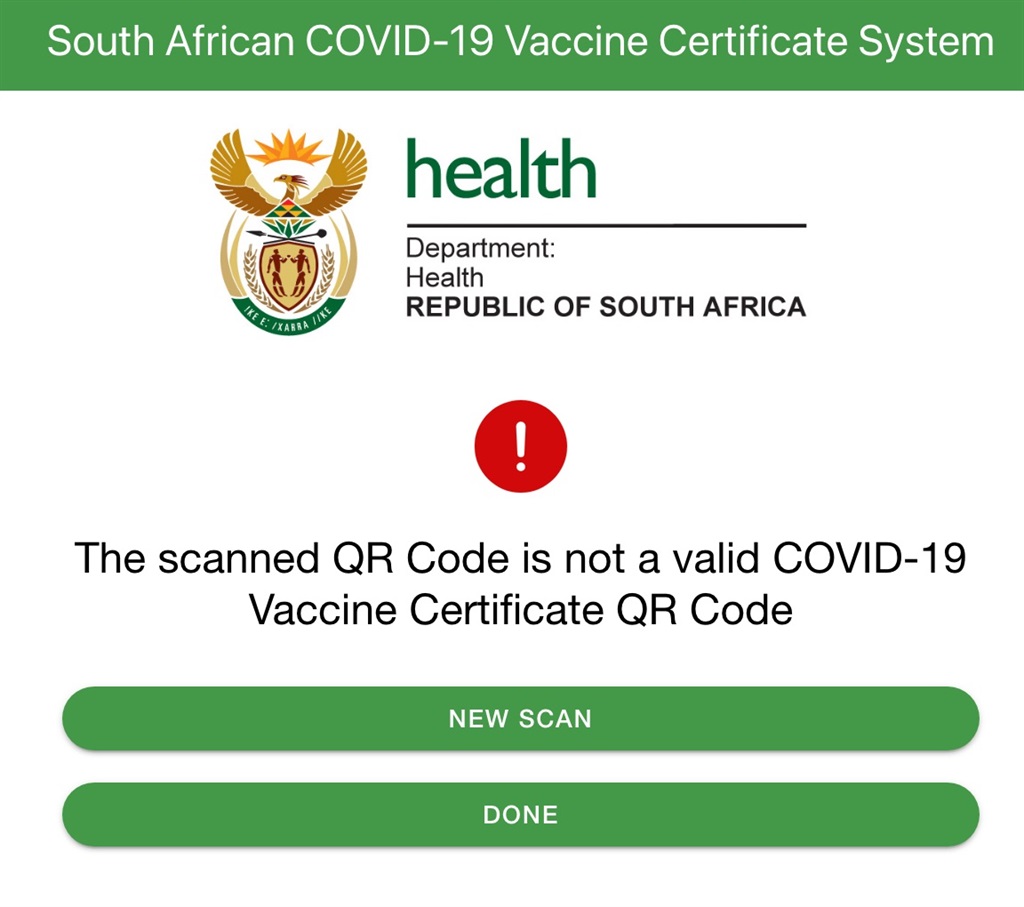South Africa has banned foreign verification of vaccination certificates as too expensive
- South Africans are getting into trouble in Malta and Oman because their vaccination certificates cannot be verified.
- The state QR code verification website is blocked for foreign users.
- That can be circumvented via VPN – but that’s not practical for border officials, Malta told South Africans there.
- A third phase of the vaccination certificate system is to be usable globally, but this is considered too expensive for the time being.
- For more stories, visit www.BusinessInsider.co.za.
South Africa’s vaccination certificates are being rejected in Malta, Oman and elsewhere because government officials cannot check them there.
And last but not least, that won’t change because it’s too expensive to allow foreigners access to a QR code system available to every South African, authorities say.
In South Africa anyone can check the QR code on each vaccination certificate through the same portal where these certificates can be downloaded: vaccine.certificate.health.gov.za.
All you have to do is point a camera at the QR code to validate it immediately.

The response to an invalid QR code.
But this website is intentionally blocked for users outside of South Africa. When a user from abroad tries to access it, the site simply refuses to load.
“Our certificate, like most in the world, can only be verified at South African borders. The cybersecurity costs associated with a globally verifiable ‘passport’ are huge,” Nicholas Crisp, deputy director general of the Ministry of Health, told Business Insider South Africa.
And opening the South African government portal to foreign users posed too much of a security risk, he said.
This means trouble for South Africans trying to get to Malta. The country’s health ministry didn’t respond to Business Insider, but did tell expatriates in Malta that it had managed to verify South African vaccination records using a virtual private network (VPN), giving a foreign user the appearance of being in South Africa.
However, that is not a viable option for its border control officers, Malta said.
Meanwhile, travel agents have told the Travel News publication about problems customers traveling to Oman and Dubai have had because those governments were unable to verify their vaccination certificates.
Other countries accept certificates that are checked upon departure rather than upon arrival, Crisp said. Malta, for example, is not doing this and South Africa’s health department is working on a solution, he said after a meeting between the two sides this week.
Easing travel was a key intent behind the certificates when President Cyril Ramaphosa announced their introduction in September.
“The rationalization and standardization of vaccination records will also go a long way towards easing a number of international travel restrictions to and from our country,” he said at the time.
When the certificates were rolled out in October, Secretary of Health Joe Phaala outlined a phased rollout that would make the system progressively safer and more widely usable.
In November, Phaala announced third-party verification of QR codes, which is now routinely available in South Africa.
He did not say when the third phase – making the system internationally auditable – is likely to be completed.


Comments are closed.